
New format eliminates reconstitution step, offering greater convenience for providers and supporting expanded access for at-risk adults.
Abene is currently a freelance writer and editor who contributes to Contagion. She is the former Assistant Editor for Contagion. She can be emailed at: sophiaabene@gmail.com.

New format eliminates reconstitution step, offering greater convenience for providers and supporting expanded access for at-risk adults.

New research finds no link between aluminum in vaccines and autism, asthma, or other health conditions, strengthening the case for vaccine safety.

Jason Haukoos, MD, MSc, FACEP, shares the decade-long journey behind the DETECT Hep C trial and why emergency departments are key to implementing Centers for Disease Control and Prevention screening guidelines.

Analysis by Carly Ching, PhD, reveals that global AMR policies overemphasize human health while neglecting farmer-focused messaging that could improve adoption and impact.

At IAS 2025, Luisa Stamm, MD, PhD, explains the NRTTI’s mechanism, study setup, and key data on HIV prevention efforts.

At IAS 2025, the VOLITION and OPERA study data show patient preference and real-world use of injectable CAB + RPV LA, informing the treatment strategy of ViiV CMO Jean van Wyk.

This week, a mother's struggle with C difficile during pregnancy, racial disparities in COVID-19 treatment, Supreme Court decision preserving access to HIV prevention, and more.

Quality improvement initiative at Henry Ford Health demonstrates streamlined workflow, rapid prior authorization, and low patient copayments; highlights opportunities for enhanced pharmacist involvement and education.
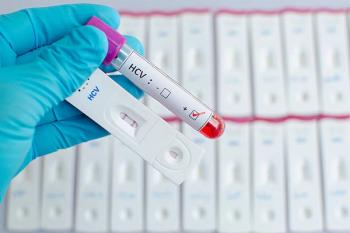
DETECT Hep C trial shows nontargeted testing in emergency departments outperforms risk-based screening, yet treatment follow-through remains low.

Carl Schmid on the US Supreme Court ruling, proposed Centers for Disease Control and Prevention cuts, stigma, and why equitable PrEP access, including new long-acting options, depends on more than insurance.

Rebecca Bromley-Dulfano, MS, says expanding access to home testing and virtual care is key to closing racial gaps in treatment.

HIV+Hepatitis Policy Institute director discusses PrEP access, insurer compliance, and challenges ahead following the landmark decision.
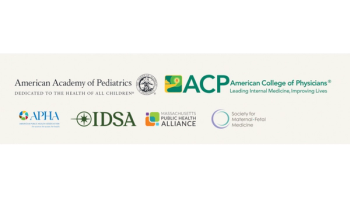
Six health organizations and a physician challenge the legality of rescinded vaccine recommendations and dismissal of federal advisory members.

Grace Kulik, PT, DPT, discusses key risk factors and the role of inflammation, ART, and screening in preserving mobility among aging individuals with HIV.

This week, Moderna’s mRNA-1010 flu vaccine showed strong phase 3 results, new research reveals that FMT may fail due to functional mismatches between donor microbes and the recipient’s gut, and more.

Significant short-term impact of MDA with dihydroartemisinin–piperaquine plus primaquine in a moderate-to-low transmission setting, highlighting the need for full seasonal coverage and community engagement to sustain gains.

In Part 2, Anna Seekatz, PhD and PhD candidate Sophie Millard highlight the need for precision microbial therapies tailored to host-specific gut environments.

Clemson University researchers Anna Seekatz, PhD, and PhD candidate Sophie Millard uncover how functional mismatches between donor microbes and recipient gut environments could limit the success of microbiome-based therapies.

Findings from a multicenter US study confirm that RBL is a safe and effective microbiota-based therapy with sustained remission in a high-risk population with comorbidities.

Vaccine candidate demonstrates 26.6% higher relative efficacy in adults 50 and older, with strong protection across flu strains.
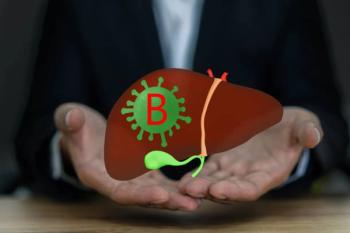
Findings from recent studies published in BMC Gastroenterology highlight practical diagnostic tools and novel therapeutic strategies to improve management of chronic hepatitis B.

Centers for Disease Control and Prevention report underscores need for improved surveillance, donor screening, and public awareness as rare WNV strain emerges and Powassan virus cases hit new high.

Several companies nationwide, with FDA oversight, recalled food products due to potential bacterial contamination, issuing consumer warnings to prevent foodborne illness.

This week, the ACIP recommends clesrovimab for RSV protection in infants under 8 months without maternal immunity, ASM Microbe talk urges for creative funding solutions amid federal freezes to sustain research and careers, and more.
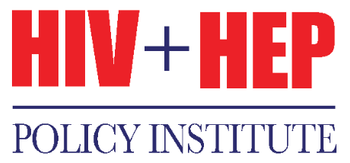
6–3 ruling preserves no-cost insurance coverage for preventive services such as HIV PrEP, contraceptives, and screenings.
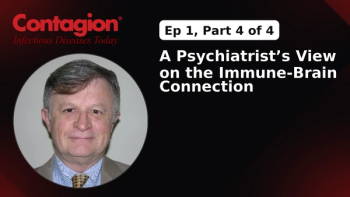
Ep 1, Part 4 of 4, Robert C Bransfield, MD, continues to share how vector-borne infections may trigger psychiatric symptoms not through direct brain infection, but by disrupting immune signaling and gene expression.

A retrospective study finds no significant difference in treatment failure between patients with obesity and those without.

John Rex, MD, FACP, discusses the promise, precision, and challenges of this first-in-class antifungal following phase 2b trial results.
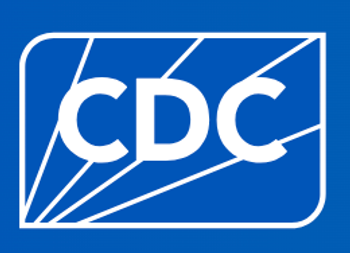
Dual ACIP votes endorse RSV antibody protection for infants and expand no-cost access through the Vaccines for Children program.

New epidemiologic data, vaccine effectiveness, and safety assessments guide a move from universal to targeted vaccination recommendations for the 2025–26 season.